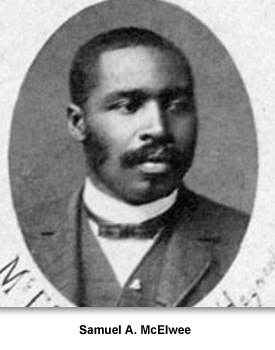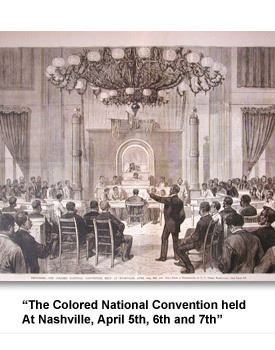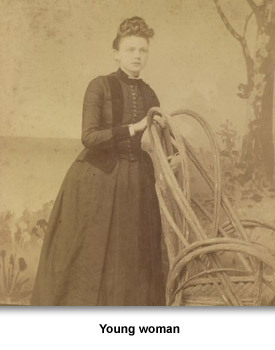Civil War and Reconstruction
Who Gets to Vote?
During Reconstruction in Tennessee, who had the right to vote was a very important question.
Should former Confederates be able to vote? Should African American men be allowed to vote? What about women?
Should former Confederates be able to vote? Should African American men be allowed to vote? What about women?
Former Confederates
Many Radical Republicans thought men who fought for or supported the Confederacy should not be allowed to vote. Radical Republican Governor Brownlow fought hard to prevent Confederates from voting in part because he knew they would vote against his party.
In contrast, more moderate Republicans favored allowing former Confederates to vote. Many white men who had supported the Confederacy believed they had a right to vote. They were very upset by efforts to keep them from participating in politics.
African Americans
African Americans actively sought political rights. For example, in August 1865, African Americans held a “State Convention of the Colored Men of Tennessee” in Nashville.
They declared: “In pursuance of the great work thus begun, we are here, by our counsels and by humble petition, to secure for ourselves the full recognition of our rights as men. We make no account of the wrongs and oppressions of the past, but would act for the future….”
White Radical Republicans decided to support suffrage for African American men, in part because they hoped black voters would cast their ballots for their candidates.
In 1867, Tennessee became the first state in the South to enfranchise black men. It was also the first state in the country to hold elections with massive African American turnouts.
Several African Americans were elected to political offices in Tennessee. Sampson W. Keeble, originally a barber from Rutherford County, became the first African American elected to the state legislature. Samuel McElwee, born a slave in Haywood County, TN, won a term and would go on to serve three terms before the poll tax and literacy tests kept black voters away from the polls.
In cities, blacks were elected to local offices such as Councilman James C. Napier of Nashville, County Commissioner Edward Shaw of Memphis, and Alderman W.S. McTeer in Maryville.
Women
After the Civil War, women across the United States demanded the right to vote. Some of the women suffragists were especially unhappy about the 15th amendment which would give African American men the vote, but not African American women.
Elizabeth Avery Meriwether of Memphis wrote letters to newspapers in the early 1870s about women’s suffrage . She attempted to vote in the 1876 presidential election, but was turned away. She rented a theater , and gave a speech there on why women should be able to vote. It would take more than 40 years before women got the right to vote in Tennessee.
To learn more about African Americans who served in the Tennessee legislature, see:
Picture Credits:
- Newspaper print from Frank Leslie’s Illustrated Newspaper entitled, “The Colored National Convention held in Nashville, April 5th, 6th and 7th. This drawing was made from a photograph taken by Nashville photographer C. C. Giers at the Tennessee State Capitol, House of Representatives. This print was originally published on May 6, 1876. Frank Leslie’s Illustrated Newspaper
- Photograph of an elderly man, from Bedford County, dressed in a rumpled coat and trousers. On the back of the picture, “Mr. Roblert Alison, Bedford Co Tenn, 18 x 10 xx full size, R. L. Holden” is written. Tennessee State Museum Collection, 1998.3.67
- Daguerreotype photograph of Elizabeth Avery Meriwether. A daguerreotype was an early type photograph used in the nineteenth century. This image of Meriwether is the basis for the image included in her book, Recollections of 92 years. Tennessee State Museum Collection, 2002.66.2
Civil War and Reconstruction >> Reconstruction >> World of Politics >> Who Gets to Vote?




 Sponsored by: National Endowment for the Humanities
Sponsored by: National Endowment for the Humanities